Navigating Capital Markets with John Derrick
In this episode of Oxford+, host Susannah de Jager is joined by John Derrick, J.P. Morgan Private Bank, to discuss the intricacies of European and U.S. capital markets, the importance of regulation, and the challenges faced by small and illiquid companies.
The conversation also delves into the cultural differences in entrepreneurial aspirations between Europe and the U.S., highlighting the importance of failure in the U.S. as a part of the entrepreneurial journey as well as the UK's need for policy-led development to support infrastructure and energy security, emphasising the importance of coordinated efforts between private and government sectors.
- (2:03) The Lifecycle of Companies
- (9:18) Growth within the Oxford Ecosystem
- (13:57) Trends in Capital and Market Listings
- (23:18) The Role of Regulation and Recent Acquisitions
John Derrick is a Managing Director at J.P. Morgan Private Bank focused on covering Entrepreneurs, Families and Foundations in the UK. His team has focused in recent years on growing the firm’s footprint and connectivity in the university spin-out ecosystem, alongside his colleagues in the Innovation Economy and Global Shares team at J.P. Morgan.
Before joining J.P. Morgan Private Bank, John had a fascinating career spanning from heading the Fine Wine department at the UK’s leading wine merchant to executing some of the earliest tech transactions in the early 2000s at large investment houses.
In his personal life, John is a trustee of Pimlico Opera which takes music into prisons and schools and was the Chair of the Royal Welsh College of Music and Drama for the last six years. John graduated in History and French from Wadham College, Oxford and joined the board of Oxford University Alumni in 2023. He lives in Oxfordshire with his husband and two children.
[00:00:00] Susannah de Jager: Welcome to Oxford Plus, the podcast series that takes you deep into the myths and truths of the Oxford investing landscape. I'm your host, Susannah de Jager and I've spent over 15 years in UK asset management.
Meet John Derrick: Managing Director at J.P. Morgan
[00:00:18] Susannah de Jager: My guest today is John Derrick. John is a Managing Director at J. P. Morgan Private Bank, focused on covering entrepreneurs, families and foundations in the UK. John is an alumni of Oxford University himself and sits on the board of the Alumni Network. He's also a driving force in J. P. Morgan's push to be even more integral to the UK's university spin out ecosystem, particularly after the acquisition of First Republic Bank in 2023.
J.P. Morgan's Role in Supporting Entrepreneurs
[00:00:45] Susannah de Jager: I'm interested to have John here today to hear his perspective on how banks can help spin outs and entrepreneurs plan their journey from angel investing stages through to listing on a main market. They have an interesting view as one of the few entities that have teams that support the entire progression, including those that have successfully exited. It's a comparable view to that of our show's sponsor, Mishcon de Reya, who are also set up to support entrepreneurs all the way through their journey with advice and of course legal structures where needed.
[00:01:13] Susannah de Jager: John, thank you so much for joining today.
[00:01:16] John Derrick: Good morning, thank you.
[00:01:17] Susannah de Jager: So, I'm really pleased to have you here because J. P. Morgan's depth and breadth in the U. K. is really expanding at pace and clearly we've seen that in Oxford and your presence is really growing. Can you talk a little bit about the structural changes within the bank that have led to this change in focus?
[00:01:35] John Derrick: Well, I think it's all about focusing on the journey of the growth of technology and companies and actually, if you see a market opportunity in front of you, then I think you need to grow into it and that's driven by the fact that we have almost 25, 000 people in the UK, that we have all our lines of business and therefore we can actually follow an entrepreneur and a company through their life cycle.
[00:01:59] Susannah de Jager: And that leads me beautifully on to what I wanted to ask you, so thank you.
The Entrepreneurial Journey: Stages and Support
[00:02:03] Susannah de Jager: I want you to maybe briefly outline what that life cycle looks like for a company, because some people are entrepreneurs and might be listening, but other people might not be aware of what that journey looks like for an academic entrepreneur, somebody coming up through that and it would be interesting to hear about how banks, in the broader term, service those different points and how people engage with yourselves.
[00:02:27] John Derrick: Yeah, I sort of think of it in three different stages. So you've got you, the individual, you've got you and your shareholders, and then you've got you and your company and I think it's about getting the journey right in terms of the advisors and the support around you. You know, when you start out and it's early on, there are quite a lot of things out there that you can use as support accelerators, incubators, you know, the UK has an amazing supply of these, it's easy to set up a company, etc. But I think there comes a point in the journey where you suddenly sit back and think, Oh, I've really got to think about the next steps here more strategically and that is where we can help as a firm. So, I think in the first instance then we think about, you know, your shareholders and we have a team of people in a company called Global Shares that can help you with your cap table, you know, it's when you go from having an Excel spreadsheet into thinking about what dilution looks like in the next round. It gets a bit more complicated than a simple spreadsheet. I think the second thing at that point is really you and your company. So if you're sort of getting to a series A, you're starting to think about not just one country but cross border. Then you start to think, okay, well, where do I find another bank that I can work with? And, you know, if you're going into three countries, or if you want to go into the U. S., then I think, you know, we have the ability to do 52 countries for you in one stop shop and you know, it takes a lot of time and admin, you want to focus on the business, not the operational side and I think then from the private banking perspective, you know, we focus on you as the individual.
Balancing Individual and Corporate Needs
[00:03:59] John Derrick: Because I think in corporate transactions, the you as an individual, the founder, the entrepreneur, the CFO, often gets forgotten and it's not just about you, it's about you and your family, because actually, for any entrepreneur to have got to where they've got to, there's a group of people around them. Might be a partner, might be children, might be a parent, but there are other people, you know, who have to go through that journey with you and you have to think of their needs as well as your own needs if you're part of a unit.
[00:04:27] Susannah de Jager: Really interesting. Do you ever find that there's a conflict between those different camps and therefore teams? Because as you describe that, I can sort of imagine the private bank is looking after the individual, but clearly the corporate bank should be focused on the company and the shareholders.
[00:04:43] John Derrick: I'm not sure there's a conflict but it's something that we, you know, my primary focus will be on the individual as a private banker and whether you're using JP Morgan or you have a smaller corporate finance shop working with you earlier on in the journey, it's my job to alert you to the things you need to think about. So if you're coming up towards an exit, our wealth advisory teams will work with you to work out, have you got that checklist done? You might have done it, great, we love that. But actually, it's a very simple thing sometimes, do you actually have a will? Do you have lasting powers of attorney? You know, if you're in a company and if you think back to COVID, when the world changed overnight and you were sick, Who's going to run that company because that's actually a fiduciary obligation of the CEO as well.
[00:05:25] Susannah de Jager: Yeah, super, super interesting and I think you're right that people didn't necessarily think about these things and now it's much more front and center, but the logistics of that can still be a headache.
[00:05:35] John Derrick: Yeah and you know, the beauty of the experience that I have, my colleagues have and our teams have is we've seen this thing before, we know what it looks like, we know how difficult it can be to focus on yourself when you're in a transaction or in a fundraise, you know, and in the world we live in today, by the time you've done Series A, my question is when is Series B. You know, the cycles are shorter, the numbers are bigger, and you do need to think of things like escrow, you know, are you, the CEO, going to be the CEO of that company once a private equity shop comes in or a venture capital company comes in? It's really quite different and sort of, you know, you can talk to your chairman probably, but there aren't that many other people you can talk to as a sort of conciliary.
Real-Life Examples of Entrepreneurial Success
[00:06:17] Susannah de Jager: Super interesting and in terms of that journey, can you give me maybe, just to bring it to life, a recent example of a company that you've sort of seen through that kind of arc that you've just described and maybe give us some colour because I think it's really interesting for people to see the specifics or hear the specifics.
[00:06:34] John Derrick: Well, I sort of think, you know, because entrepreneurs sort of divide into the mercurial and the mercenary and somewhere in the middle is the right answer and so, you know, if I look at recent years, you know, I've seen someone go from being in a position where, you know, they were going to take 300 million out of a company to zero and that's because they were probably a bit too aggressive on the valuation, the world changed slightly overnight, you know, through to the person who really isn't sure whether they do want to go for an exit and if they're going for an exit, then you know, what does the escrow facility look like? What does the earn out look like? And at what point, potentially, can they restart the same business again? That is not a conversation they're going to have with the acquirer, but they are the real life examples because when you've been in charge of your destiny and you suddenly get to a point where, you know, somebody else in inverted commas might be the majority or a significant shareholder, then the world does change and you don't know how you're going to feel. So, I think you can go from the sort of zero to hero, but pretty much quickly back and, you know, that is the challenge of single stock exposure, all the way through to people where suddenly, you know, the wealth, in inverted commas, was not really what they set out to. They didn't set out to achieve wealth, they set out on a mission as an entrepreneur to achieve something or to change the world.
[00:07:57] Susannah de Jager: Yeah and I think that's a really interesting point around what drives entrepreneurs and those that are often most successful are the ones where it's the passion that's driving them rather than the want of an exit.
[00:08:09] John Derrick: Yeah, we had a group of entrepreneurs yesterday talking to the next generation of families and you know, there the real point was, if you start a business with the idea of selling it in three years time, that's really different from starting out with a business where blood, sweat and tears will deliver the outcome and you know, there are very few entrepreneurs who haven't used blood, sweat and tears or potentially, you know, remortgaged their house without telling their partner, all the things that on a scale of 0 to 100, if you're used to investing in financial markets, appear as 100. But there is a sort of yin and yang in that business where, you know, it is our job as advisors, as bankers to say, okay, but what if, yes, I know you believe in your business, but the trigger point when you particularly have either dependence or a family can change that perceptive, so age can also change the perceptive, the perception of risk as well.
[00:09:04] Susannah de Jager: Yeah and the fact that, I was fascinated by this, that your prefrontal cortex, which measures risk, isn't fully formed until you're in your, I think, late twenties or early thirties? Yeah. So, actually backed up by the science there.
The Oxford Ecosystem and Its Growth
[00:09:17] Susannah de Jager: So, in terms of Oxford and you obviously live here and you're an alum yourself, how are you seeing what Oxford as an entity, as a city, as a university is doing, changing? And how do you see that feeding into Yeah. your perspective on kind of university towns.
[00:09:35] John Derrick: Yeah, I think, you know, as I was living in London for a long time, I'd obviously been a student here, I was probably desperate to get out by the time I'd left, like most people. But when I moved back here, you could sense in the air this excitement and this buzz and in a way the stars became aligned because the power of science to address the issues we have in the world today is, has never been more important and that's not to say that science wasn't important, but it is quite clear to deal with the biggest challenges we have, that the science is imperative and so I think what you could see is a city which has its challenge because it's quite small and quite constrained, really reaching that point where you've got domestic and international, you've got a level of fundraising that means you need to be global, not just local and so this sort of stars a line around that. I mean, it's not exclusive, clearly, to Oxford because you've obviously got Cambridge, you've got London, but the advantage of a smaller place is that you do get that clustering effect and you are beginning to see that in other cities, but more around subsectors, maybe rather than across the board and that has to do with the depth and scale of the research, which at the end of the day is the most important bit.
[00:10:51] Susannah de Jager: Yeah and actually it's so interesting, the more you get to know Oxford, you discover new science parks and little pockets all the time, you and I were discussing before we recorded about the fact that here we've got 30 businesses and you know, this is another, you know, little place outside of Oxford.
[00:11:06] John Derrick: And you can map the sectors out because, you know, I, can remember being invited to go to Harwell, to the Nuclear Field Center, taking my passport, you know, I had no idea there was something called the British Nuclear Police and you know, you start to realise that you've got a space cluster with a hundred companies. I would have seen 30, no, it's 100 already. Then you go to Bicester and you start looking at the future of automotive and then you start thinking about helicopters and the future of travel and drones and I think that's the clustering on a more mini level, but driven by sectors.
[00:11:39] Susannah de Jager: Yeah and in terms of sort of how your people are integrating with the individual ecosystems, you and I have spoken. about this a little bit.
J.P. Morgan's Global Presence and Local Impact
[00:11:47] Susannah de Jager: JP Morgan obviously has this huge global presence, but it's been very notable in recent months that JP Morgan are specifically increasing, kind of feet on the ground and I'd love to understand what the thinking is behind that. Why you clearly as a company have taken the view that you need people in place and that you can't just pivot out of London for the sake of argument.
[00:12:07] John Derrick: I think it is the reality that in the world we live in today, that companies are born and they grow much faster and to a certain extent, yes, the technology is important, but also the ability to access capital and the pace, because if you look at a sector like quantum, you know, there are a number of players in that space, it's very hard to know which one, in inverted commas, is the one that will advance the quickest. But I think it's a realisation that you can't just turn up later on, for example, when a company is about to exit, to do the big deal, or if you're the private banker, phone at the last minute. You need to be able to offer value to that individual on that journey and I think if you think of university clusters, then you get this quantum of spin outs. Some will work, some won't, but at least you have a validation and a smaller network that allows you to be able to be very effective in bringing a lot of people together on our side, because to bring people together on our side as we did, you know, through the JP Morgan Forum in Oxford, you know, takes quite a lot of organisation. But if you can put all of those people in the same room at the same time, you get a multiplicity of contacts and connectivity between our existing clients and others, who might be in contiguous sectors, who'd have thought that biology and artificial intelligence go together if you think of an insect's mind, but they do today. But you need to be able to match people up and that is what we can do because we're very fortunate having an extremely global
[00:13:39] John Derrick: network.
[00:13:39] Susannah de Jager: And Actually, it can be so unexpected, the people that end up connecting for different reasons and so trying to predict those things can be really very difficult and I think that's a good point about just sort of critical mass of events like that. You were speaking about access to capital and you mentioned indeed international capital.
Trends in Capital and Market Listings
[00:13:57] Susannah de Jager: It'd be really interesting to hear from again, your perspective, you know, international bank plugged in to many different areas and geographic locations. What are you seeing in terms of trends for the companies that are getting to sort of Series A, B, C and beyond? Dilution of UK capital, do you see that as a positive? Do you think there needs to be more domestic capital? How are you seeing the whole piece evolve?
[00:14:21] John Derrick: You know, I think sometimes people say, oh, well, there's too much private capital in private equity or VC on the sides and you know, it's about three trillion dollars of dry powder in inverted commas. But I think relative to the size of GDP, that number hasn't necessarily changed over 20 years, so you have to think of the total growth of the world, not just the number, I think it's number one. Secondly, you know, there will always be a need for global capital with expertise in sectors which are by definition global, you know, artificial intelligence, biology, life sciences are simply not domestic concerns, they are global and actually COVID was a very good example of all of that coming together. It required the power of a global system to cure it. Nobody had the golden nugget. I also think that if you go back to that three trillion, there is in inverted commas plenty of capital. What you actually need is smart capital because you need that connectivity. I think one of the things that's changing is you're beginning to get maybe an institutionalisation of private capital. What do I mean by that? I think the ability to go beyond the ping pong of one email into another person's email box to say, do you know X and can you help me? Trying to create platforms to be able to do that in a more sophisticated way and that also has to do with the fact that, you know, the number of listed companies, whether it's the UK or the US, has substantially diminished over time. It is more expensive to list. It takes more time, you know and some of these sectors maybe are not, in inverted commas, right for the listed market because the nature of the profitability or lack of profitability at the early stage. I mean, this isn't so different from the early 2000s because if you go back to that period and you look at, you know, the performance of the equities, of unprofitable companies in 2000, if they were unprofitable in 2000 and unprofitable in 2004, then the stock price was down about fifty one percent. If they were unprofitable in 2000 and profitable by 2004, they were up about plus 30 percent. So nothing really has changed, we've seen this story before. Profitability matters if you're listed and it doesn't have to be today, but it's very hard to list if you don't have a clear path to profitability.
[00:16:41] Susannah de Jager: And it's interesting to hear you say that because I was having a discussion the other day actually about VCTs, so Venture Capital Trusts in the UK and just the discount that they trade at because of some of the forces that you're outlining there, even though it's a portfolio and in theory it's therefore diversified, you don't have that concentration of risk, firstly, people are quite sensitive to the noise within the portfolio, which is often on the negative, but also the UK market in particular is a real sort of income, I appreciate there are income elements, but income seeking markets. Do you have a view on how that could or should change? Or do you think it's just pretty hard to move the needle?
[00:17:20] John Derrick: I mean, I think sometimes the dilemma of, you know, no UK listings, you know, the worry around this, it's slightly exaggerated by the press to a certain extent because actually the same concerns probably exist in France, Germany, Italy, you know, they worry about the US in the same way, you know, we have one of the most developed capital markets in Europe. I mean, it is the original stock exchange if you go back in the day and you know, we've got thousands of companies listed, you know, I worked on an IPO in the early 2000s of one of the first Spanish tech listings and it really was the first Spanish technology company. I mean, in inverted commas, you wouldn't necessarily think of it as technology today. But there were no other companies listed and you know, I think at the time there might have been 250 companies listed. I mean, not many, we were still in the thousands at that point and most European exchanges have explored, you know, junior exchanges, whether it's the Neue Market in Germany, whether it's a junior one in the Nordics. So, you know, the dilemma remains the same, probably more of a European versus a US consideration, I would say, just because you've got the depth of 360 million people and an equity culture, in domestic buyers and also the philosophical approach to failure. Failing is not an embarrassing thing in the United States where the entrepreneurial dream lives on. It's harder to do that in European countries.
[00:18:44] Susannah de Jager: I've heard that a lot over the years that I've been focused on this area and it's a little bit depressing, but it does still seem that it rings true and that sense of failure, but also that predicates people maybe having lower aspirations of what success looks like and that sometimes they exit sooner.
[00:19:03] John Derrick: I think that was definitely true if you go back five, ten years, but I think now you've got a lot more education, you've got a lot more advisors, you know, that's one of the major reasons that we did the Oxford Forum really was to get people together and to say to them, deals are happening, but you need to be selective about who you're working with and that is not entirely self serving, but it is really the fact that you need to talk to people who've got access to pools of capital, whether they're family offices, whether they're pension funds, whether they're insurance companies or sovereign wealth funds. You don't know what you don't know until you ask the question and you know, that to me is probably the thing that I try and impress most on the clients that we talk to.
[00:19:49] Susannah de Jager: You were talking earlier about, sort of, J. P. Morgan coming into companies earlier, forming those relationships and that really resonates and makes sense. Almost with the same thought in mind, when you look at companies not listing here, I'm often intrigued that from what I can see, but I'd love to hear what you see, that the AIM market, that the main London Stock Exchange even, that they aren't making more of a sort of effort to get in at the foothills to make sure that pathway is clear, easy, smooth, the path of least resistance, I suppose and clearly there are reasons, you spoke about the domestic market size in the U. S. and that people might want to list in the U. S. anyway, but it seems to me that there is more that could be being done domestically to just make it less expensive and easier and not quite subsidise it, but almost given how valuable it is to the UK. I'm always intrigued that we're not.
[00:20:46] John Derrick: I think there are definitely changes that are happening, will happen. I think everybody recognises that. But, you know, there's that very fine balance between changing the rules too much and then in inverted commas ending up with a scandal. It's a fine line and you know, as any financial institution knows, it takes you a very long time to develop your reputation and you know, those can change very quickly. So, I do think there's that push pull. What you need is an understanding of sensible regulation that will help people access capital, but without also putting them in a position where they're either not ready for that, they're too small or they're too early and then they're illiquid and actually illiquid stocks really aren't great whether it's UK or US. You know and if you're a significant company in the UK or in Europe, you could be a very small company in the US. You know, sub a billion dollar market cap is a super small company in the US and if you think of the size of many European companies earlier on, that's the challenge. So to be a small illiquid company with no research, basically puts you off the radar for most people and you know, the word changes with MiFID in terms of who could write research, who can access research. But, you know, even then, even if you've got two brokers covering you, it's not amazing from an investor's perspective, particularly in a world where you have got mega cap companies who've got huge transparency, massive growth, you know and they're profitable.
[00:22:20] Susannah de Jager: Yeah and actually, with my former hat on, we had a small cap European focus fund and if you were between 105 and 1.5 billion, as you say, you would have maybe two brokers covering you, and then MiFID hit and they would just, it wasn't profitable for them to cover those companies, so it is a real problem with that depth of research, and I think it is something people are focused on, and clearly looking at repealing some of that, which is positive, but not fast and you make that point too, you can't repeal regulation without it.
[00:22:49] John Derrick: It's a fine balance but, you know, regulation is good when it is super effective and efficient. I mean, regulation is good because it, in inverted commas, stops bad actors from entering a market. But there's always a fine line between whether it's burdensome or whether it achieves its objectives. But regulators set out with good objectives and if you're a bank, you want to operate, you know, well within those, and you welcome them, but there's always consultation before anything gets put in place.
The Role of Regulation and Recent Acquisitions
[00:23:18] Susannah de Jager: And so, talking about regulation, it brings us naturally on to your purchase of First Republic Bank and how that's changed your perspective in this space even further and how that's impacted.
[00:23:29] John Derrick: Yeah, I mean, in the U. S., we have had bankers in what we call the innovation economy team for a number of years who have dealt with deep tech, life sciences, quantum and obviously if you go back about a year and a half ago when you had the transaction where Silicon Valley Bank had its issues, but also First Public, you know, there was an opportunity to expand what we did, covering earlier stage VC funds to double up in terms of what we did in the technology space and that is when the innovation economy teams were expanded outside the U. S. because you had a moment and a commercial opportunity to actually engage and more importantly, to help companies in a very difficult time. It was very traumatic for companies on the weekend when those events took place and we were able to come in very fast and help people and that is, you know, the first question that you need to ask your network at that point or the entrepreneurs you're dealing with is, what can I do to help? And that was the critical bit that we were able to do in scale and size because we have done multiple acquisitions, the firm is a combination of over 200 banks and so, you know, an M& A is tough, but when you've got teams of hundreds of people who've done it before who know what needs to do, you know, First Republic Bank was almost 11, 000 people who suddenly went from a Friday working First Republic to working for J. P. Morgan, that is a huge achievement and then you've got to bed those people in and then you've actually got to understand who their clients are, because again, it's not about the bank, it's about the clients, you know, money is financial well being. It is what, you know, will trouble people if it's not safe and secure.
Oxford's Infrastructure and Future Prospects
[00:25:08] Susannah de Jager: So slightly switching, I wanted to hear your thoughts on some kind of practical on the ground things that are changing in Oxford. So obviously we've got the Ellison Institute of Technology arriving here and you had Sir John Bell speaking at your Oxford event. How do you see these things changing Oxford? How do you see it with your hat on as a part of the alum network? Yeah, I'm really intrigued to get your perspective.
[00:25:32] John Derrick: Yeah, I mean, like, the university's always had a very strong international network and particularly in post graduates, you know, I think it's 50 50 at undergraduates, 80 20 between domestic and international. So it's always been there, but the arrival of other institutes which cluster around the university, which aren't necessarily part of the university, and there are ones today, Rhodes House is a very good example, which isn't part of the university, which most people don't realise.
[00:25:58] Susannah de Jager: I didn't realise that.
[00:26:00] John Derrick: It technically could go somewhere else, but it is an integral part of the ecosystem. So to have other people like Ellison arrive who are complimentary to places like roads, which has that phenomenal global network, really is powerful and I think that, you know, as you bring more international entrepreneurs in who will be part of the Ellison Institute, who will see, you know, when you get there, you get very excited when you start to see what's going on and you know, when you go to any of the events, people say, well, you must meet X, you must meet Y, sometimes it's quite astonishing that X and Y don't know each other, I have to say, that's one thing I found, but we have the ability to put them together and so, you know, I always think of it as being the Michelin stars sort of example when, you know, you had the Waterside Inn and then suddenly you get the Fat Duck and people go, but it's a tiny little village, how can you have two? Well, actually, two and two is five at that point and so that is where, you know, something like the Ellison Institute, which already is a significant organisation in the U. S. makes a difference. It's very easy to get that connectivity and in particular because the language is a common language. So, it's interchangeable, you can move people from the U. S. to the U. K. to work and, you know, there aren't any challenges, maybe except cultural ones.
[00:27:19] Susannah de Jager: Yeah, they can bring their ambition over, their lack of fear of failure, so that would be a good thing. So we obviously focus a lot in Oxford and have a great deal of depth and expertise in life sciences. But we've also got coming in the Steve Schwarzman Humanities Building and it'd be really interesting to see if you're seeing things coming out of the pipeline on the humanities side too, because it can sometimes feel, not one dimensional, I think that would be unfair, but a little narrow and I think there's huge benefit from broadening that out and I'd love to know if you're seeing anything on that other side yet.
[00:27:53] John Derrick: Yeah, plural or interdisciplinary worlds are something that also goes through waves where people go, well, you know, we don't need languages, we don't need the arts, etc. But in reality, if you think of artificial intelligence, if you think of machine learning, you need a deep understanding of neuroscience and a deep understanding of how language systems work and so I do think that the growth of those sectors in particular will mean a larger crossover between the science and the understanding of humans and the psychology of humans because it says it's called artificial intelligence and intelligence typically is driven either by humans or obviously in animals as well. So, I think that confluence and the interest, you know, it's the concept of the high table, where you can talk about these is going to be a major differentiator than just having a bunch of scientists in the room, you know, if you're building any business, if you're building a management team, you need the challenge and skill set around the table, you do not want groupthink.
[00:28:55] Susannah de Jager: Absolutely. So another thing that you brought up earlier briefly is, the sort of geographic and, dare I say it, sort of infrastructure. of Oxford specifically, and you and I have spoken about this before, there is a sense that the UK needs some big policy led development in order to accommodate the growth of these companies, you and I were talking about the power grid restrictions the other day. J. P. Morgan obviously does have a seat at that table, talking to governments, whichever government, for anyone listening, this is pre the election, but whichever government does get in, I'd love to know from that sort of bricks and mortar infrastructure side what your wish list would look like for anyone and what you think the UK needs to be focused on.
[00:29:40] John Derrick: I mean, I think if you go back to, you know, people love talking about artificial intelligence, but the question is, where are we in that stage of growth and what matters now? And what matters now is the development of the toolkits of artificial intelligence and whether that's, you know, the chips. It's not necessarily the application of artificial intelligence, but quite early, stage one is the chips and the power and in order to have the chips to drive the quantum computers you need power and if you don't have those three building blocks in place, then it's very hard to see how you can go to the application of it and it's the power conundrum that is the most important within there and that requires a coordinated approach between planning, between local, between national government, you know, it is really hard to do this stuff. And it's very hard to do in locations where it's very green and very pretty around because, you know, solar panels take a lot of space. So you have to be very organised, very structured and the answer is a combination of the private and the government working together and I think people get that. The question is, can we do it faster? I think to me, that's probably the most critical thing, for any government, they need to be part of that equation because they control planning typically.
[00:30:58] Susannah de Jager: Wonderful and going back to that theme of, you know, what the UK and policy focuses should be. I'd love to get your idea of what the themes are that you're seeing and that you really think the UK should be digging in as sort of world leader for.
[00:31:11] John Derrick: I think the themes that we've been looking at for the last three years, they're not new, but some have been, you know, gone up in importance. So the health, climate and security, you know, and security is about physical security, but also energy security, back to the discussion earlier on. They are very big, very global and they are the things that require people to work together, but also a doubling down of capital. You will not solve the climate crisis unless you get trillions of dollars going into this space and there, I think, has been the largest change in the last few years, where people realise that we are starting to have the technology that can make a massive difference, but it absolutely requires trillions of dollars because it requires infrastructure and the challenge of that is potentially create some more CO2 in the short term because you've got to build these things and no one has cracked the concrete conundrum. So I think the realisation that you need to invest, like health, in order to prevent is the underlying impact here and, you know, post Ukraine, energy security was something that we had largely ignored, you know, we had talked before about the importance of critical infrastructure and the importance of the security of the future, whether that is supply chains in food and energy or whether it's the health infrastructure, you know, you have to be so agile in the world we live in today because the pace of change is exponential. If you think back to the steam engine, you know, the impact of the steam engine probably took, you know, 30 years to make a difference. You could argue chips maybe took 15 years and artificial intelligence will take 8 years. So you know, that requires both people and institutions to have the ability to be agile and for financial institutions to be able to react to it, you know, when something happens in the world, you know, our operating committee will meet on the weekend and you know, if that's the invasion of a country, we will have our advisors on a call to understand what we need to do to be operational on Monday because we are systemically important.
[00:33:17] Susannah de Jager: And it's really interesting because you're totally right, these themes that were there bubbling along, I'm sure there was a sort of backup plan in place, but suddenly food security with the price of grain was a front page issue and you know, for years we've just been looking at globalisation driving down the costs and not at those factors and so it has reared its head and that sort of issue of sovereignty is much more at the forefront of people's minds, so that really resonates. By the way, I have to reference, I really enjoyed your pun on crack the concrete conundrum. I don't know if that was intentional but it made me smile.
[00:33:51] John Derrick: But you know, if you look at the amount of CO2 gen, you know, more CO2 is generated by concrete than by cows and the poor cows are often regarded as the methane contributors.
[00:33:59] Susannah de Jager: Absolutely and these are the issues. It sounds rather cynical, but I think I've been like this since I was really very young, when people say, well, we need to stop doing things to generate CO2. I say, yes, we do. I absolutely agree with that and, or, but, we need to capture carbon and that's going to be the way that we change the style now.
[00:34:18] John Derrick: Yeah, I think, you know, car parks are a fascinating one because, of course, car parks were built for cars, A, that were smaller, and B, that weighed a lot less. A battery is very heavy, so cars are much heavier. If everyone drives a car with a heavy battery, then at what point do you need to rebuild all those car parks, and they're all made of concrete.
[00:34:38] Susannah de Jager: That's fascinating, I would never have thought of that, but that makes a lot of sense and I think there's a lot of maths like that isn't properly thought through. But actually, you as a bank are very good at looking at those issues, I know and clearly Jamie Dimon has a whole team looking at this kind of thing. So...
[00:34:54] John Derrick: Yeah and planning for the future, because if you're a lender, if you're an advisor, then you need to think of the risk of the portfolio that you lend into. You know, if you're one of the largest lenders in real estate in the U. S., then you, if you're not thinking about climate change, you have a real problem because if you lend against a property that suddenly ends up in the ocean, it's not a great security.
[00:35:13] Susannah de Jager: Indeed.
Conclusion and Final Thoughts
[00:35:14] Susannah de Jager: John, thank you. This has been a really, fulsome conversation. I feel like we've done a whistle stop tour through lots of areas, but it's very kind of you to come and talk to us from the perspective of a banker and how you can help, thank you.
[00:35:27] John Derrick: Thank you, Susannah.
[00:35:28] Susannah de Jager: Thanks for listening to this episode of Oxford Plus, presented by me, Susannah de Jager. If you want to stay up to date with all things Oxford Plus, please visit our website, OxfordPlus. co. uk and sign up to our newsletter so you never miss an update. Oxford Plus was made in partnership with Mishcon de Reya and is produced and edited by Story Ninety Four.


More episodes+
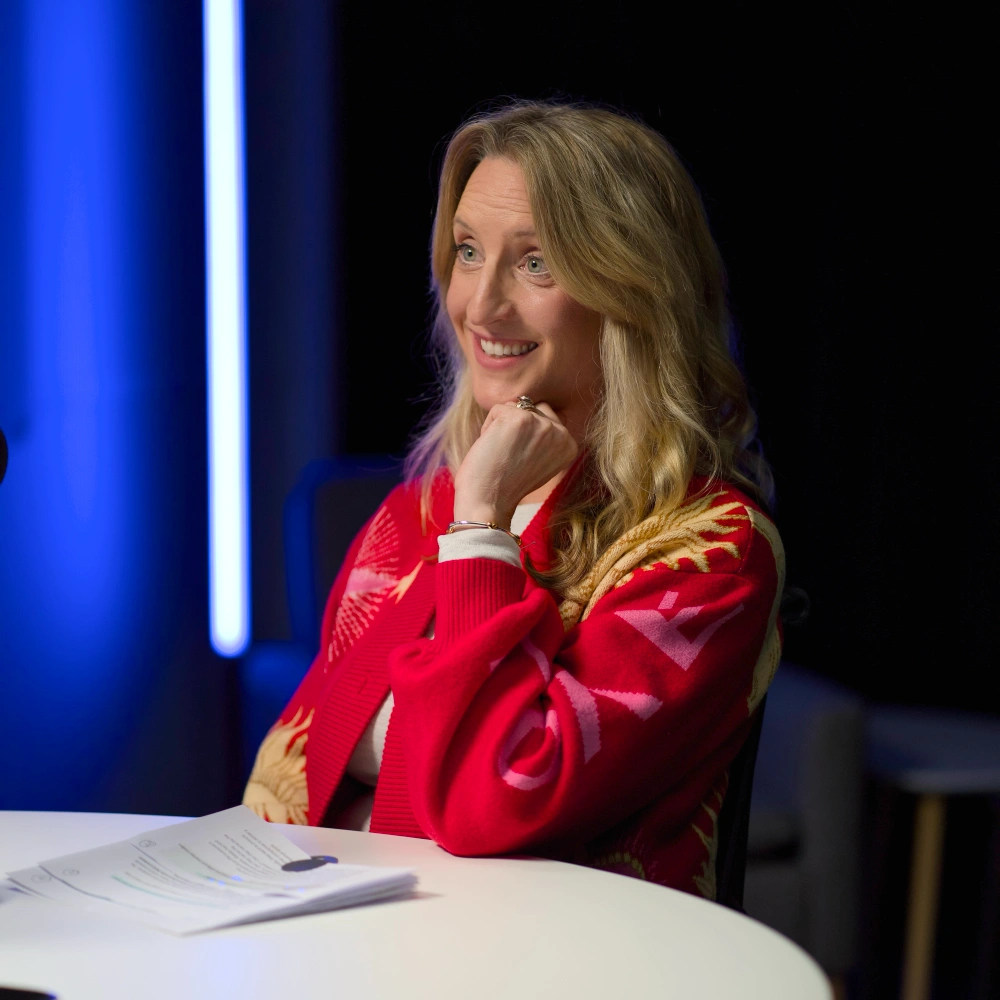
Defence Innovation in the UK: How Startups Win Government Contracts
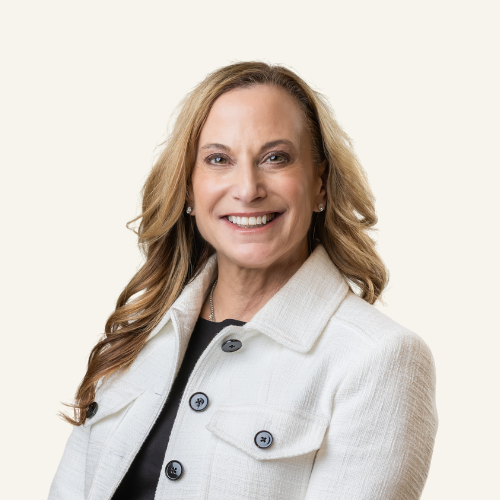
Building a £10 Billion Vision: Inside the Ellison Institute of Technology with Lisa Flashner

The Multiplier Effect: Funding Companies, Ecosystems, and the Future of the UK
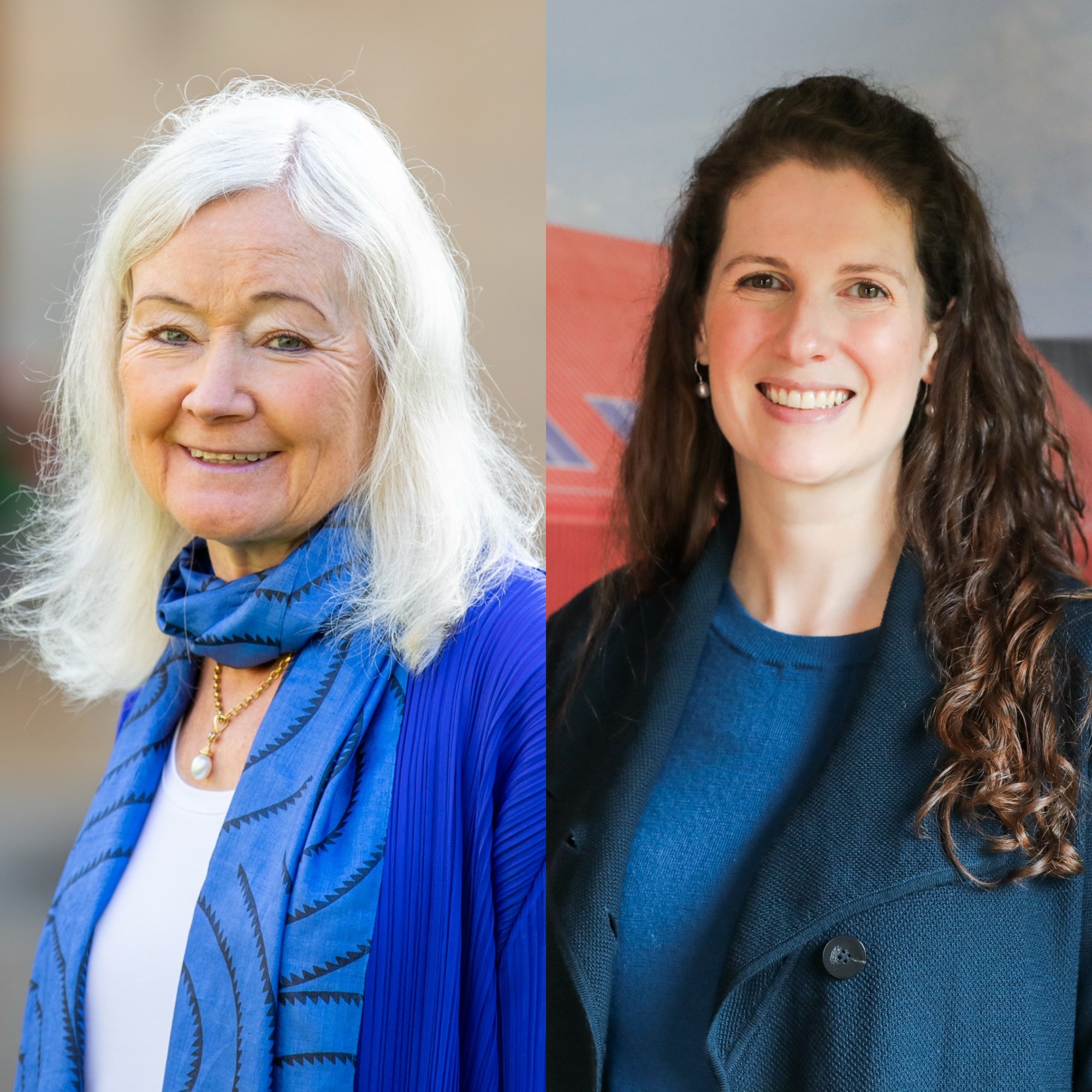
Oxford North: The New Innovation District in Oxford

The Cluster Effect: How Bicester Motion is Driving the Future of Mobility
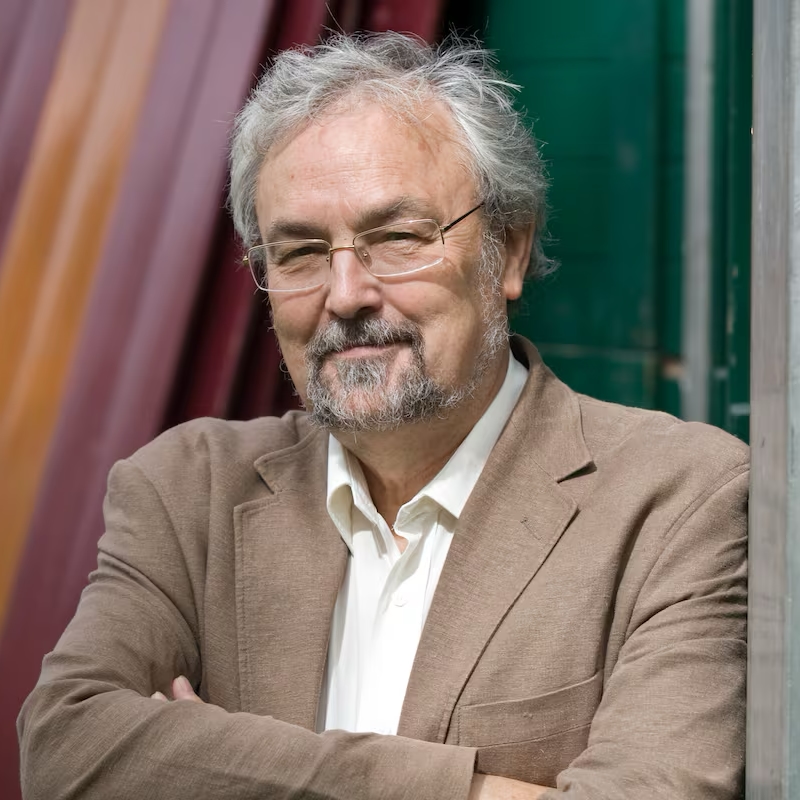
The Psychology of Scaling Companies and Teams with Professor Robin Dunbar: Part 3

The Psychology of Scaling Companies and Teams with Professor Robin Dunbar: Part 2

The Psychology of Scaling Companies and Teams with Professor Robin Dunbar: Part 1

The Future of Genetic Medicine with Zandy Forbes, CEO of MeiraGTx
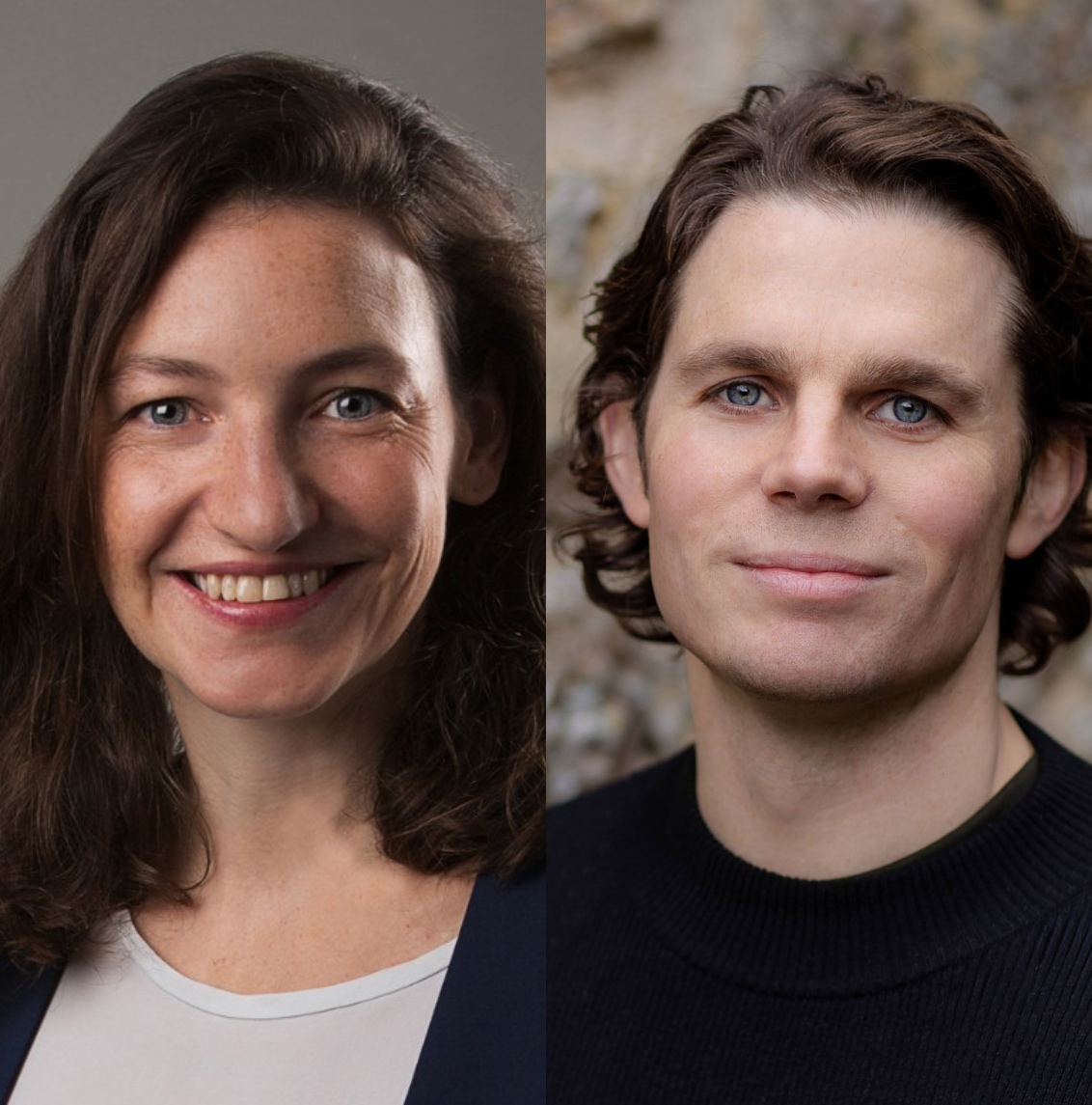
How Founders Pledge Uses Data to Maximise Philanthropic Impact

The Oxford Trust at 40: How Innovation and Education Power Oxford's Future

Can Sirona Rival Ozempic? A New Chapter in Obesity Treatment with Camilla Easter

Aligning Founders and Investors with David Mott

Building Billion-Pound Outcomes with Jack Edmondson

How Machine Learning in Oxford Is Transforming Medicine Worldwide with Lionel Tarassenko

Bringing Science to Society with Molly Stevens

How Oxford University Innovation Bridges Science and Business with Mairi Gibbs
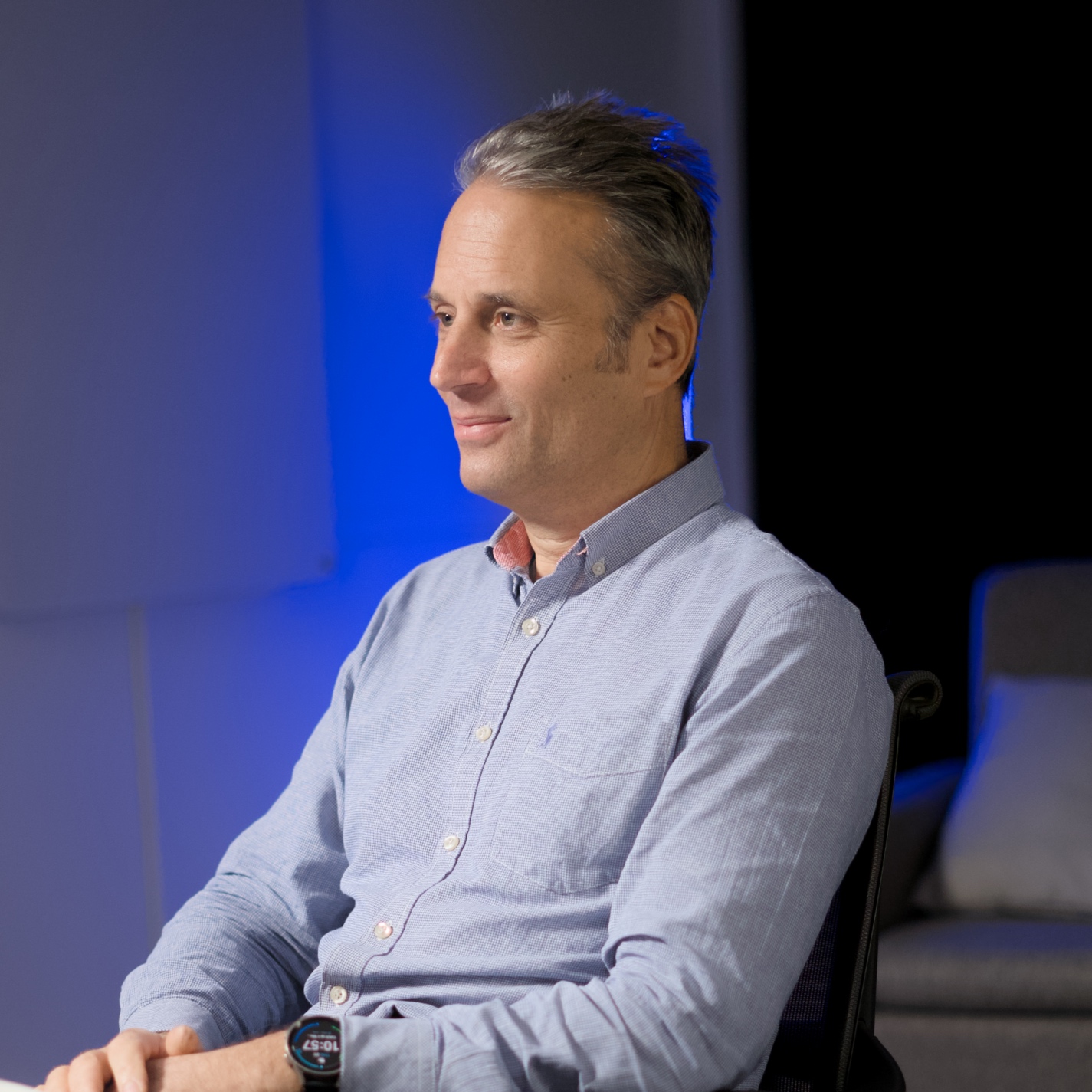
What Formula One Teaches Us About Startups and Success with Adam Parr

Risk and Reward in Early-Stage Tech Investments with George Robinson

Charting Fresh Career Paths with Sue Douglas

From Oxford MBA to Startup CEO with Lily Elsner

Navigating Market Dynamics with Marcus Stuttard

Harnessing Local and Global Talent with Sarah Haywood
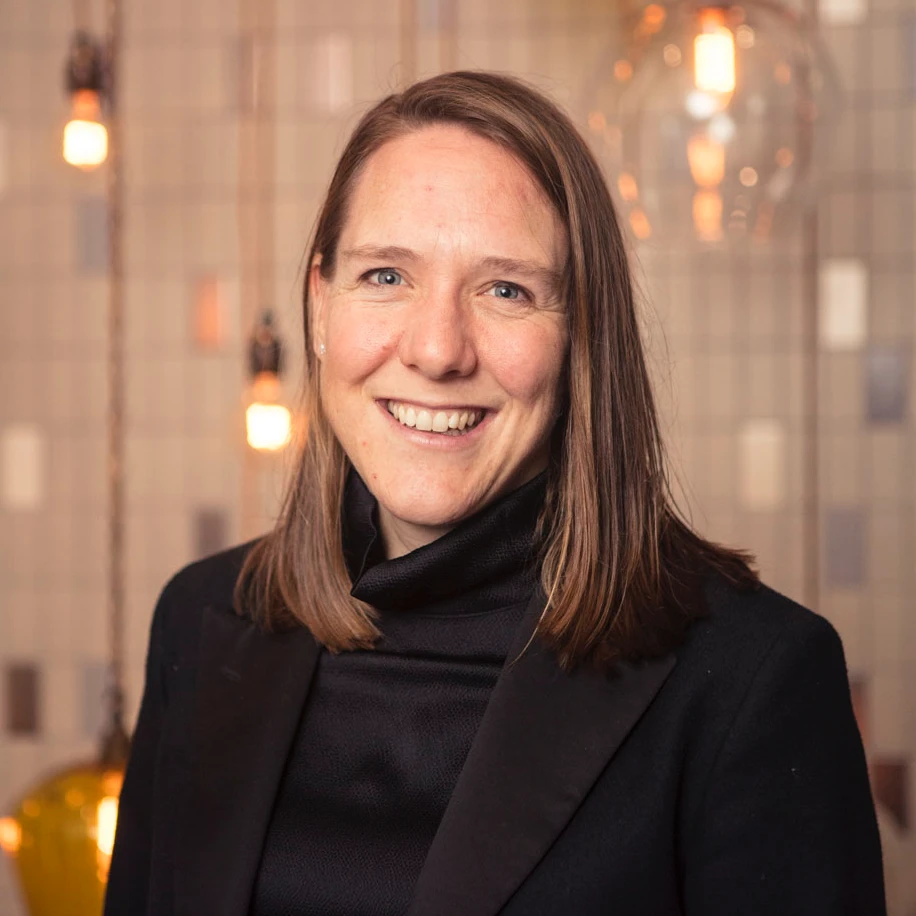
Building Oxford’s Future with Anna Strongman

Breaking the Myths Around University Spin Outs with Irene Tracey

Navigating the Future of Oxford Sciences Enterprises with Ed Bussey

Oxford's Role in the Next Industrial Revolution with Dave Norwood

Diversifying the Investment Ecosystem with Rowan Gardner

Pension Investment and the Mansion House Compact with Nicholas Lyons

Lessons from the Motorsports Cluster with Mark Preston

From Research to Reality with Cici Muldoon

Nurturing Founder-Driven Ventures in Oxford with Peter Crane
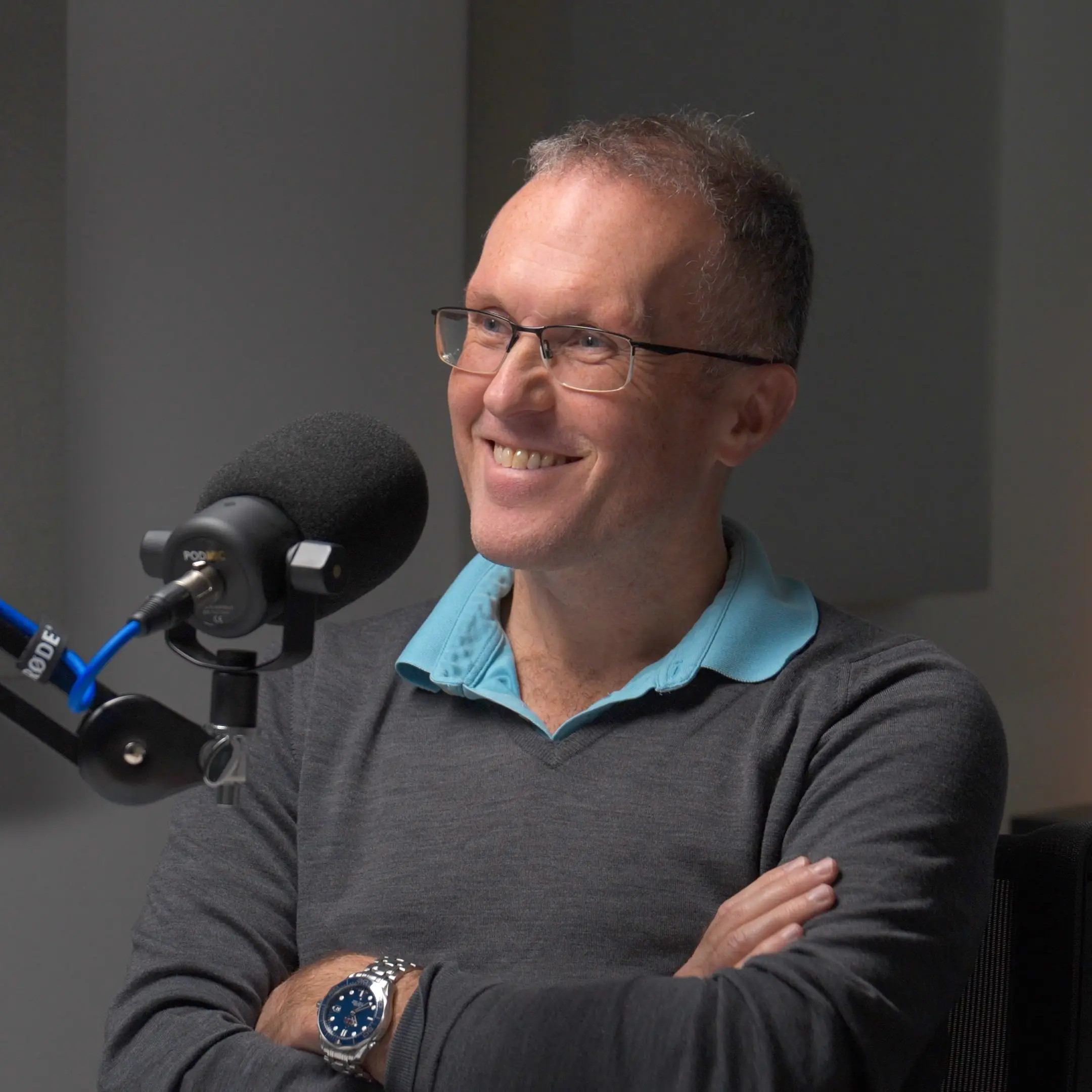

.png)
.png)

